On August 24, 2017, the Supreme Court of Kentucky held that employees may bring class actions for wage violations, such as an employer’s failure to pay minimum wages or overtime wages. See Mary McCann v. The Sullivan University System, Inc., 2015-SC-000144-DG, 2017 Ky. LEXIS 358.
McCann was hired by Sullivan as an admissions officer in 2006. Like other admissions officers, McCann would recruit and interview prospective students to determine if they were good candidates for admission, then enroll them.
After McCann was terminated in 2008, she filed a class action lawsuit under the Kentucky Wages and Hours Act, KRS Chapter 337, claiming that she was misclassified as an exempt employee and that she should have been paid overtime wages during her employment. KRS 337.385 states that a legal claim may be maintained for wage violations “by any one or more employees for and in behalf of himself, herself, or themselves.” KRS 337.385(2). The Kentucky courts had interpreted this provision to mean that an employee, or more than one employee, could bring a legal claim on his or her own behalf, but not on behalf of others. See, e.g., Toyota Motor Mfg., Ky., Inc. v. Kelley, 2013 Ky. App. Unpub. LEXIS 910 (Ky. Ct. App. Nov. 15, 2013).
Relying on Kelley, the Jefferson Circuit Court denied McCann’s motion to certify the case as a class action. The Kentucky Court of Appeals affirmed the denial.
The Supreme Court, however, reversed the decisions. The Court first determined that KRS 337.385 was not a “special statutory proceeding” that operated outside of or beyond the scope of the Kentucky Rules of Civil Procedure. Special statutory proceedings are those that comprehensively prescribe every procedural detail, such that the proceeding becomes “a wholly self-contained process.” These proceedings include dependency, abuse, and neglect matters, forcible detainer or eviction proceedings, and election contests.
The Court next determined that, although KRS 337.385 neither explicitly permitted nor prohibited class actions, Rule 23 of the Kentucky Rules of Civil Procedure set forth how and when a class action may be maintained. And, in the absence of special statutory proceeding, Rule 23 permitted claims for wage violations under KRS 337.385 to be pursued as class actions.
In a class action, of course, one or more plaintiffs, or class representatives, maintain legal claims on behalf of those who are similarly situated, the absent class members, for some kind of relief or compensation. On of the hallmarks of a class action is the pursuit of claims that, on an individual basis, don’t offer a high enough recovery to warrant action, but the potential recovery for hundreds or even thousands of others make the case worth pursuing.
The take-away: The availability of class-action relief for employees can open employers to significant exposure for misclassification of their workforce. Employers are advised to review their workforce-classification policies and procedures, such as whether an individual is classified as an independent contractor or employee, or whether an employee is classified as exempt or non-exempt under the Kentucky Wages and Hours Act.
If you’re an employer and you’d like help reviewing your current practices, we can help. We can review your current policies and practices, provide proactive advice on how to remedy any potential issues, and take steps to mitigate any potential liability.
If you’re an employee and you, and possibly your co-workers, have been denied minimum wages or overtime wages, we can help. We can investigate your potential claims and let you know your options for proceeding, either in an individual action, a class action, or through the Kentucky Labor Cabinet.

